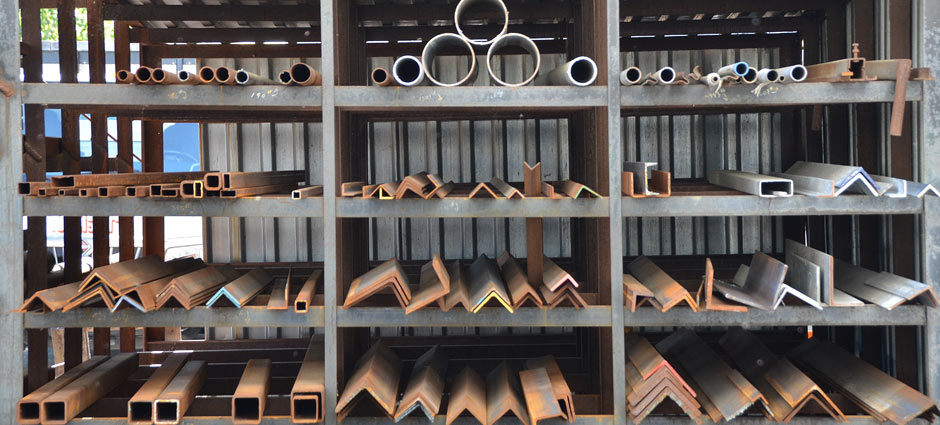
Acier Lachine Inc. has a large inventory of used and second-hand products. Why pay more? We invite you to contact one of our representatives for more information.
Environmental Benefits:
-
Reduces need for mining new raw materials.
-
Lowers greenhouse gas emissions (1.5 tonnes of CO2 saved per tonne of recycled steel).
-
Conserves resources like iron ore, coal, and limestone.
-
Resource Conservation:
-
Decreases consumption of new materials.
-
Reduces energy required for steel production.
-
Utilizes scrap in both blast furnace (15%-25%) and electric arc furnace (up to 100%) methods.
-
Economic Efficiency:
-
Lowers production costs.
-
Ensures a steady supply of raw materials.
-
Industry uses around 650 million tonnes of scrap annually.
-
Sustainability and Circular Economy:
-
Supports reuse and recycling principles.
-
Recycled steel retains its properties and often improves in quality.
-
Steel products have a long lifecycle, averaging 40 years.
-
Quality and Versatility:
-
-
Recycled scrap maintains high quality.
-
-
-
Advanced sorting techniques manage impurities like copper effectively.
-
-
Steel Production: Scrap is used in both blast furnace and electric arc furnace steelmaking processes. In blast furnaces, it accounts for 15%-25% of the raw material mix, while electric furnaces can use up to 100% scrap.
Cooling Agent: In blast furnaces, scrap acts as a cooling agent, absorbing excess heat and aiding the decarbonization process.
Iron Units: Scrap provides additional iron units, reducing the need for raw iron ore and contributing to lower greenhouse gas emissions.
Automobile Manufacturing: Secondary steel is extensively used in the production of automobiles, constituting around 65% of a vehicle’s total material. Its strength and affordability make it ideal for various car parts, including bodies and fenders. Recycled steel from old cars is often reused to manufacture new vehicles.
Construction and Building Materials: In construction, secondary steel is employed for structural components like beams, roofing, ductwork, and lighting fixtures. It’s also utilized in prefabricated buildings, sheds, and agricultural structures due to its durability and strength.
Home Appliances and Furniture: Home appliances such as refrigerators, stoves, and dishwashers are largely made of steel, with about 75% of these appliances containing steel. Additionally, steel is used in furniture design for its durability and modern aesthetic, appearing in items like table legs, chairs, and office desks.
Art and Sculptures: Steel is a popular material in the creation of outdoor sculptures and artistic endeavors. Its durability allows it to withstand elements, making it suitable for public art installations and business signs.
Packaging: Steel is frequently used in food packaging, particularly in canned goods. Recycled steel is an eco-friendly choice, as it requires less energy to process compared to new steel.
Environmental Impact:
-
Reduction in Waste: Utilizing secondary steel helps in reducing the amount of steel waste that would otherwise end up in landfills, promoting a circular economy.
-
Energy Savings: Recycling steel requires significantly less energy compared to producing new steel from raw materials, thereby conserving energy resources and reducing greenhouse gas emissions.
-
Economic Advantages:
-
Cost-Effectiveness: Secondary steel is generally more affordable than newly manufactured steel, making it a cost-effective option for many industries.
-
Market Stability: The availability of secondary steel helps stabilize the steel market by providing an alternative supply source, especially during periods of raw material shortages or supply chain disruptions.
-
Resource Conservation:
-
Preservation of Natural Resources: By reusing steel, industries can conserve natural resources such as iron ore and coal, which are required for steel production.
-
Sustainability: The practice of recycling and reusing steel contributes to sustainable development goals by promoting resource efficiency and reducing the environmental footprint of industrial activities.
-
